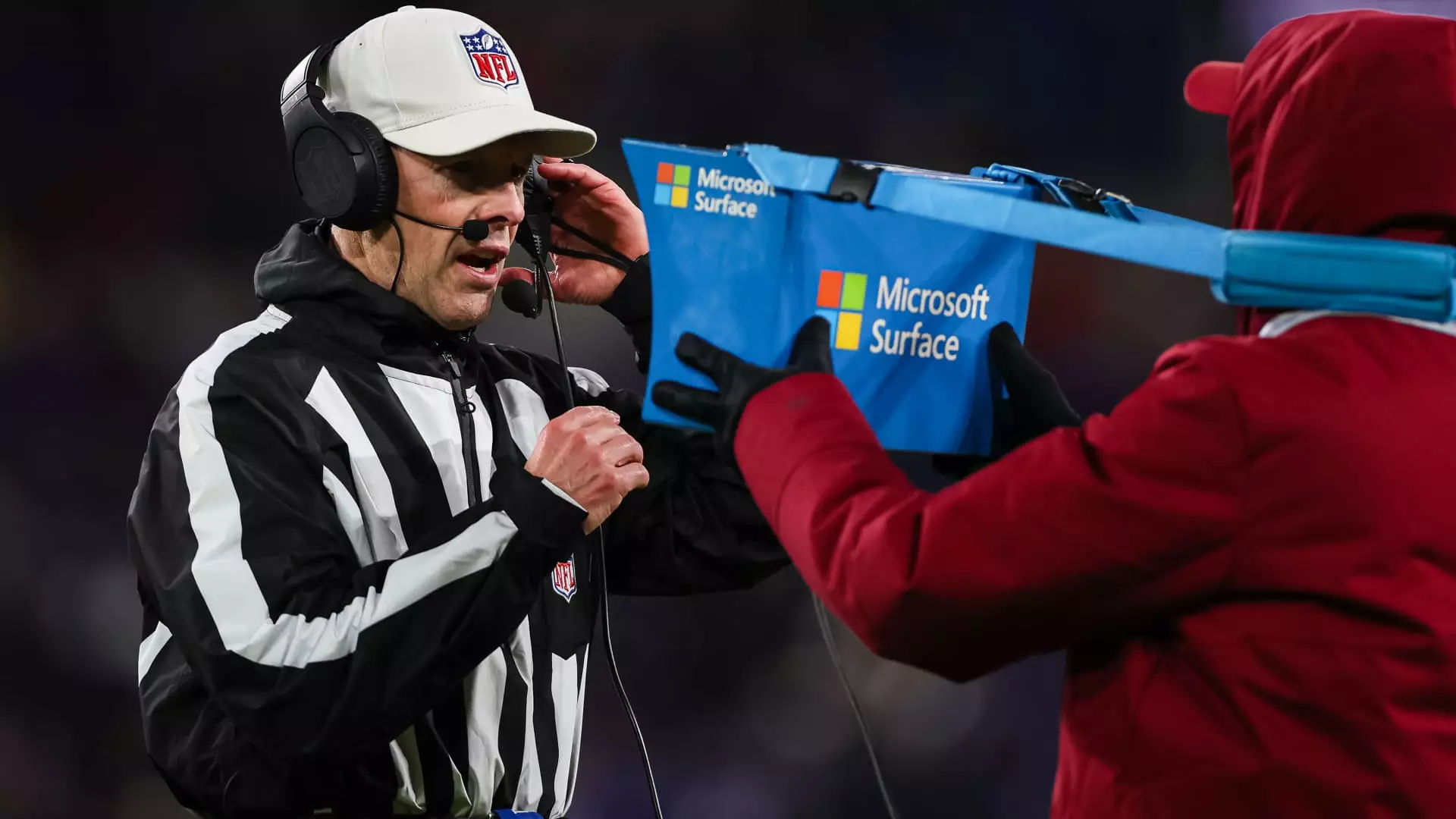The partnership between Microsoft and the NFL exemplifies our relentless pursuit of technological superficiality, cloaking outdated sports traditions under a guise of innovation. While on the surface this alliance touts the deployment of advanced AI tools, it ultimately serves to deepen the league’s reliance on data-driven automation at the expense of core human elements. It is not genuine progress but a calculated effort to commodify the game further, turning players and coaches into mere nodes within a machine designed for relentless optimization. This superficial embrace of AI pretends to elevate athletic performance and fan engagement, but beneath it lurks a disturbing trend: the erosion of authenticity and spontaneity that make football captivating.
The Myth of Enhanced Spectacle and the Reality of Control
The NFL claims these technological upgrades will “enhance” the gameday experience, but what they really do is tighten the league’s control over every facet of the game. The introduction of over 2,500 Microsoft Surface Copilot tablets across all teams simplifies data collection but reduces the diverse, unpredictable human elements that make sports compelling. Coaches and players are increasingly tethered to instant analytics, stripping away the organic chaos that often determines the game’s outcome. Instead of empowering athletes to adapt intuitively, AI homogenizes decision-making, fostering a sanitized, predictable environment that diminishes the raw excitement of competition.
The Use of AI as a Distraction from Deeper Issues
By focusing on deploying tools like Azure AI during practices, combine evaluations, and even fan engagement, the NFL sidesteps more pressing issues: player safety, long-term health, and the social impact of a sport marred by injury and controversy. Instead of confronting these real problems, the league invests heavily in sophisticated data collection and analysis that deepen its dependency on technology-driven governance. It’s a distraction from the fundamental flaws of the sport, masked under the narrative of progress. The emphasis on technological innovation becomes a seductive distraction, a shiny new toy that deflects attention away from the sport’s darker realities and ethical dilemmas.
The Capitalist Drive for Data-Driven Domination
Microsoft’s deepening partnership with the NFL underscores a broader trend: capitalism’s obsession with data as the ultimate commodity. While fans may believe their favorite sport is about passion, rivalry, and unpredictability, the reality is far more commercialized and manipulative. AI becomes the new frontier for extracting value—within the league’s operations, in player decisions, and even in fan interaction via apps. This is less about improving the game and more about turning football into a controlled product, optimized for maximum profitability, with every play and fan interaction monitored, analyzed, and exploited.
The Danger of Reducing Humanity to Data Points
Perhaps the most troubling aspect of this technological surge is how it reduces the profound human elements of sports—intuition, emotion, serendipity—into quantifiable data points. Coaches’ decisions are increasingly dictated by AI-generated metrics, while players find their instinctual gameplay mediated by digital inputs. This mechanization risks turning athletes into mere cogs within a lucrative machine, stripping away the artistry and unpredictability that define sportsmanship. It’s a dangerous trajectory that prioritizes efficiency over authenticity, potentially transforming one of humanity’s oldest competitive activities into a sterile spectacle driven by algorithms and analytics.
The NFL’s embrace of AI and big data, championed by corporate giants like Microsoft, epitomizes the perilous allure of technological progress as a veneer for deeper control and commodification. While it may superficially promise a more exciting, efficient game, it ultimately sacrifices the soul of football for the cold calculus of data analytics. This narrative of innovation masks a troubling reality: that progress, when driven by corporate interests and state-of-the-art AI, often erodes the very human touch that makes sports inspiring and meaningful. The real question is whether we are willing to accept a future where authenticity is replaced by automation, where spontaneity is sacrificed at the altar of efficiency, and where the game we love is more controlled than ever before.

